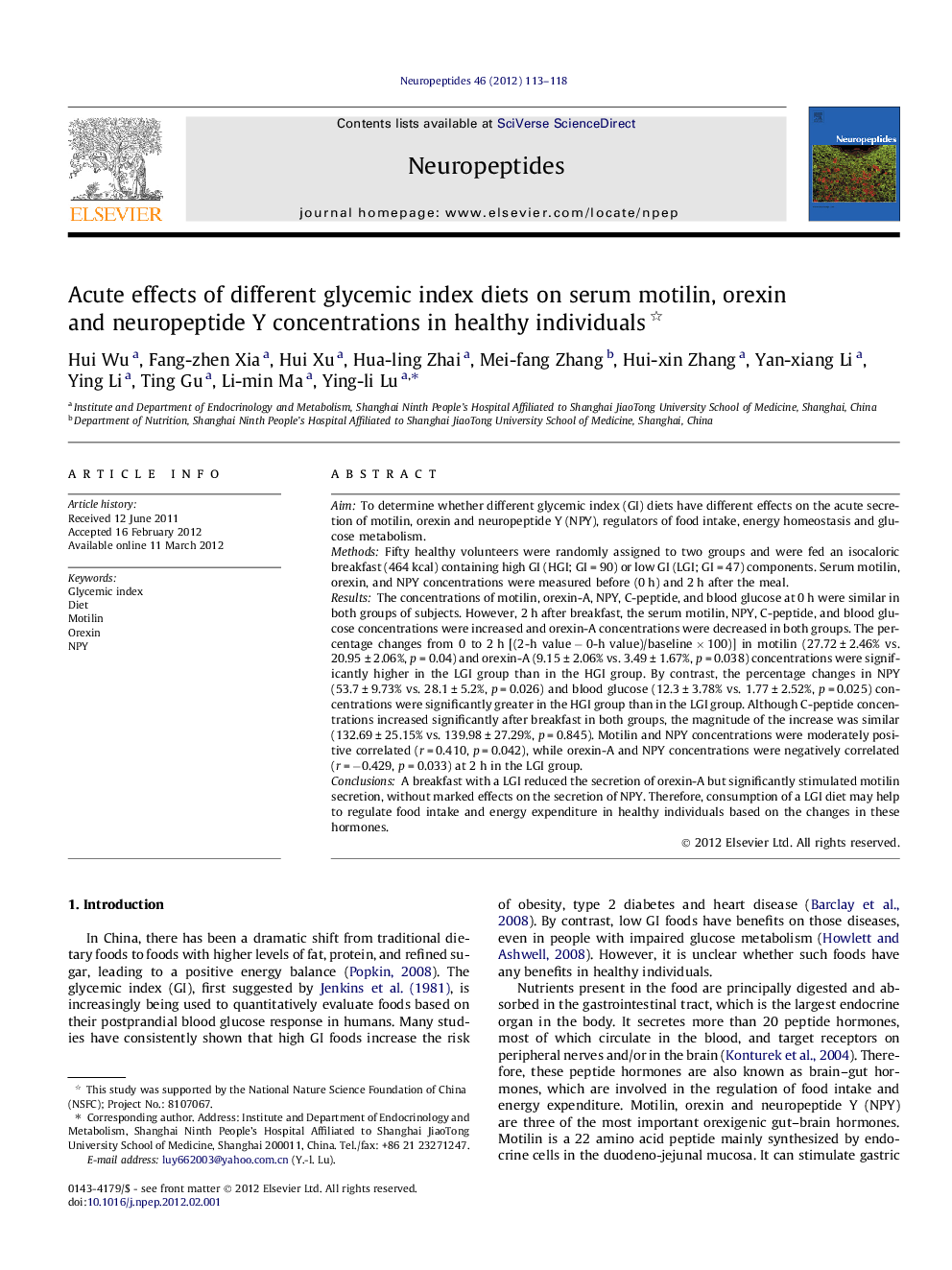| Article ID | Journal | Published Year | Pages | File Type |
|---|---|---|---|---|
| 2808260 | Neuropeptides | 2012 | 6 Pages |
AimTo determine whether different glycemic index (GI) diets have different effects on the acute secretion of motilin, orexin and neuropeptide Y (NPY), regulators of food intake, energy homeostasis and glucose metabolism.MethodsFifty healthy volunteers were randomly assigned to two groups and were fed an isocaloric breakfast (464 kcal) containing high GI (HGI; GI = 90) or low GI (LGI; GI = 47) components. Serum motilin, orexin, and NPY concentrations were measured before (0 h) and 2 h after the meal.ResultsThe concentrations of motilin, orexin-A, NPY, C-peptide, and blood glucose at 0 h were similar in both groups of subjects. However, 2 h after breakfast, the serum motilin, NPY, C-peptide, and blood glucose concentrations were increased and orexin-A concentrations were decreased in both groups. The percentage changes from 0 to 2 h [(2-h value − 0-h value)/baseline × 100)] in motilin (27.72 ± 2.46% vs. 20.95 ± 2.06%, p = 0.04) and orexin-A (9.15 ± 2.06% vs. 3.49 ± 1.67%, p = 0.038) concentrations were significantly higher in the LGI group than in the HGI group. By contrast, the percentage changes in NPY (53.7 ± 9.73% vs. 28.1 ± 5.2%, p = 0.026) and blood glucose (12.3 ± 3.78% vs. 1.77 ± 2.52%, p = 0.025) concentrations were significantly greater in the HGI group than in the LGI group. Although C-peptide concentrations increased significantly after breakfast in both groups, the magnitude of the increase was similar (132.69 ± 25.15% vs. 139.98 ± 27.29%, p = 0.845). Motilin and NPY concentrations were moderately positive correlated (r = 0.410, p = 0.042), while orexin-A and NPY concentrations were negatively correlated (r = −0.429, p = 0.033) at 2 h in the LGI group.ConclusionsA breakfast with a LGI reduced the secretion of orexin-A but significantly stimulated motilin secretion, without marked effects on the secretion of NPY. Therefore, consumption of a LGI diet may help to regulate food intake and energy expenditure in healthy individuals based on the changes in these hormones.
